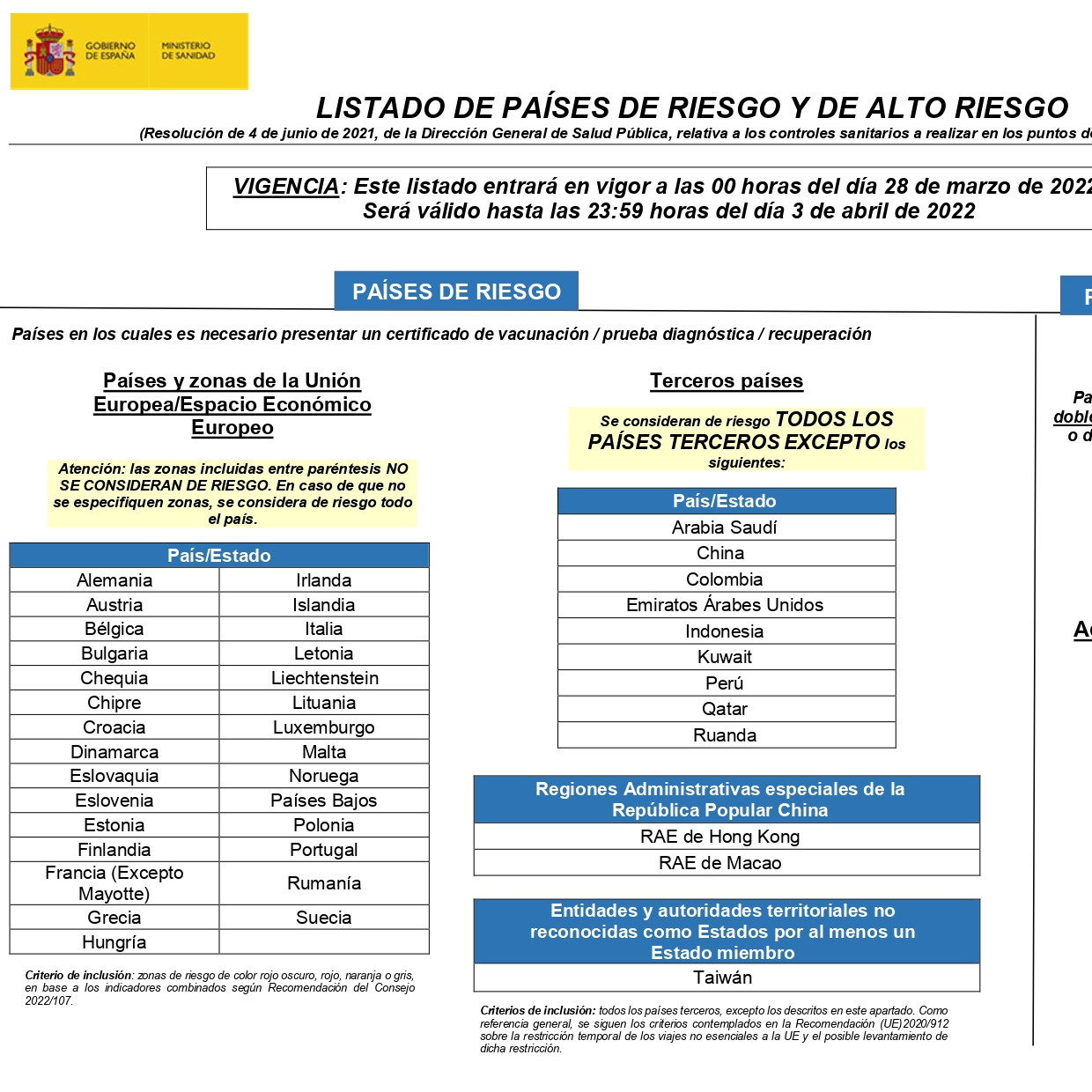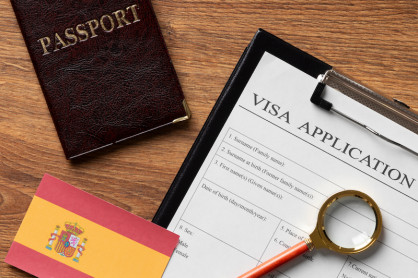Spain has long been a popular destination for property buyers, whether for holiday homes, retirement homes, or investment purposes. With its beautiful beaches, vibrant cities, and rich culture, it's no wonder that many people are looking to buy property in Spain. However, buying property in a foreign country can be a complex process, so it's important to understand the legal steps involved. Here's a step-by-step guide on how to buy a property in Spain.
Steps to buy a property in Spain
- Find a reliable real estate agent: The first step in buying a property in Spain is to find a reputable real estate agent who specializes in the area you're interested in. They will guide you through the process of property search.
- Obtain a Spanish NIE number: Before buying a property in Spain, you'll need to obtain a Spanish tax identification number, known as an NIE (Número de Identificación de Extranjero). This can be obtained from the Spanish consulate or embassy in your home country.
- Conduct a property search: Your real estate agent will help you find properties that meet your criteria and arrange viewings.
- Make an offer: If you find a property you're interested in, you can make an offer to the seller.
- Hire a lawyer: It is highly recommended to hire a Spanish lawyer, such as TA LAWYERS, who specialises in real estate law to guide you through the legal process before signing any reservation contract for the property. They will carry out due diligence on the property, review or make the purchase contract, and ensure that all legal requirements are met.
- Sign a purchase contract: Once your offer is accepted, you'll need to sign a purchase contract and pay a deposit to secure the property. The deposit is typically 10% of the purchase price and is held in escrow until the completion of the sale at the notary. This contract outlines the terms of the sale, including the purchase price, payment schedule, and any conditions or contingencies.
- Obtain a mortgage (if necessary): If you require financing to purchase the property, you'll need to apply for a mortgage from a Spanish bank. Your lawyer can help you with the application process and ensure that the terms of the mortgage are favourable.
- Pay the remaining balance: Prior to completion, you'll need to transfer the remaining balance of the purchase price to the seller's bank account. Your lawyer will ensure that the funds are transferred securely and that all necessary taxes and fees are paid.
- Register the property: After completion, your lawyer will register the property in your name at the Spanish Land Registry. This is an important step to ensure that you have legal ownership of the property.
Buying a property in Spain can be a complex process, but by following these legal steps and seeking professional advice, you can navigate the process with confidence. Remember to do your due diligence, work with reputable professionals, and ensure that all legal requirements are met. With careful planning and the right guidance, you can make your dream of owning a property in Spain a reality.
Taxes Associated with Spanish Property Transactions
When buying a property in Spain, it's important to be aware of the taxes associated with the transaction. Here are some of the key taxes you may encounter:
- Value Added Tax (VAT): VAT in Spain, is applicable to the purchase of new properties. The current rate is 10% of the purchase price. However, if the property is classified as social housing, the VAT rate is reduced to 4%.
- Transfer Tax (ITP): Transfer tax is applicable to the purchase of resale properties. The rate varies depending on the region where the property is located but typically ranges from 6% to 10% of the purchase price.
- Stamp Duty: Stamp duty is a tax payable on the documentation related to the purchase of a new property, such as the purchase contract and mortgage deeds. The rate also varies depending on the region but is generally around 1% to 1.5% of the purchase price.
- Capital Gains Tax: If you sell a property in Spain and make a profit, you may be subject to capital gains tax (CGT). The rate is currently 19% for non-residents and 19% to 23% for residents, depending on the amount of gain. There are exemptions and deductions available, so it's advisable to seek professional tax advice to optimize your tax liability.
- Municipal Property Tax (IBI): Municipal property tax is an annual tax payable by property owners. The amount is based on the cadastral value of the property and the tax rate set by the local municipality.
- Non-Resident Income Tax: Non-residents who own property in Spain are required to pay non-resident income tax (IRNR). This tax is calculated based on the imputed rental income of the property, regardless of whether it is rented out or not. The tax rate is currently 19% for EU/EEA residents and 24% for residents of other countries.
It's important to note that tax rates and regulations can change, so it's advisable to seek professional advice from a tax advisor or lawyer who specializes in Spanish property transactions. They can provide personalized guidance based on your specific circumstances and help you navigate the tax obligations associated with buying and owning a property in Spain.
Timeframe for Real Estate Acquisitions in Spain
When it comes to real estate acquisitions in Spain, it is important to understand the timeframe involved in the process. From finding the right property to completing the transaction, there are several steps that need to be taken, and each step can take varying amounts of time. In this article, we will outline the general timeframe for real estate acquisitions.
- Property Search: The first step in the process is to find the right property. This can be done through real estate agents, online listings, or by attending property auctions. The amount of time it takes to find a property can vary depending on your specific requirements and the current market conditions.
- Due Diligence: Once you have found a property that you are interested in, it is important to conduct due diligence. This involves inspecting the property, reviewing legal documents, and conducting any necessary surveys or assessments. The timeframe for due diligence can vary depending on the complexity of the property and any issues that may arise during the process.
- Negotiation and Offer: After completing due diligence, you will need to negotiate the terms of the purchase and make an offer. This can take anywhere from a few days to several weeks, depending on the negotiations between the buyer and seller.
- Reservation Agreement: Once the offer has been accepted, a purchase agreement is typically signed. This agreement outlines the terms of the purchase and reserves the property for the buyer. The timeframe for signing the reservation agreement can vary, but it is usually done within a few days of the offer being accepted.
- Exchange of Contracts: The next step in the process is the exchange of contracts. This is when the buyer and seller sign the final contract and agree on a completion date. The timeframe for exchanging contracts can vary, but it is typically done within a few weeks of signing the reservation agreement.
- Completion: The completion date is when the final payment is made, and the property officially changes ownership. The timeframe for completion can vary depending on the specific terms of the contract, but it is typically within 30 to 90 days of exchanging contracts.
- Registration: After completion, the property needs to be registered with the Land Registry. This can take a few weeks to a few months, depending on the workload of the registry office.
It is important to note that the above timeframe is a general guideline and can vary depending on various factors such as the complexity of the transaction, the responsiveness of the parties involved, and any unforeseen issues that may arise during the process. It is always recommended to work with experienced professionals such as real estate agents, lawyers, and surveyors to ensure a smooth and efficient acquisition process.
Financial Breakdown: What it Costs to Buy in Spain
One of the first costs to consider when buying a property in Spain is the purchase price. The price of properties in Spain can vary greatly depending on the location, size, and condition of the property. In popular tourist areas such as the Costa Blanca, prices can be higher compared to more rural or less popular areas. It's important to do thorough research and work with a reputable real estate agent to find a property that fits your budget.
In addition to the purchase price, there are several other costs associated with buying a property in Spain. One of the most significant costs is the property transfer tax, known as Impuesto de Transmisiones Patrimoniales (ITP). The ITP is a percentage of the purchase price and varies depending on the region of Spain. It typically ranges from 6% to 10% of the purchase price.
Another cost to consider is the notary and registration fees. These fees are paid to the notary and the land registry for the legal transfer of ownership. The notary fees will depend of the pages of the deeds and the purchasing price.
It's also important to factor in the cost of a mortgage if you are planning to finance your property purchase. Mortgage rates in Spain can vary depending on the lender and your financial situation. It's important to shop around and compare rates to find the best deal. Additionally, there may be additional costs associated with obtaining a mortgage, such as valuation fees and arrangement fees.
Once you have purchased a property in Spain, there are ongoing costs to consider. One of the main ongoing costs is property taxes. The IBI is an annual tax based on the value of the property and typically ranges from 0.4% to 1.1% of the property value.
Other ongoing costs include community fees, if you are buying a property in a complex or development with shared facilities. These fees cover the maintenance and upkeep of communal areas and can vary depending on the size and amenities of the development.
It's also important to consider the cost of utilities, such as electricity, water, and gas. These costs can vary depending on the size of the property and your usage.
Buying a property in Spain comes with a myriad of associated costs to consider, such as the purchase price, transfer tax, notary and registration fees, mortgage costs, property taxes, community fees and utility costs. Navigating through these costs can be daunting. That's where we come in. At TA Lawyers, we offer our expertise to guide you in understanding and managing these expenses smoothly to secure the purchase of the property in Spain. When investing in Spanish real estate, partnering with experienced professionals like us guarantees you a smooth and financially astute purchase.







 Hello, how can we help you?
Hello, how can we help you?